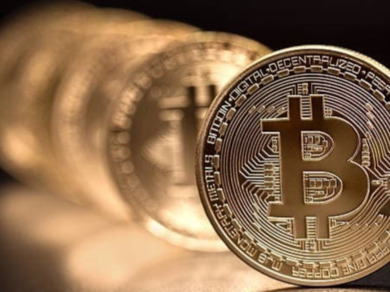DAOs: The Vanguard of Decentralized Governance in the Digital Age”

By Dr. Pooyan Ghamari, Swiss Economist
As we venture further into the digital era, Decentralized Autonomous Organizations (DAOs) are emerging as a groundbreaking innovation, reshaping our understanding of governance and organizational management. By utilizing blockchain technology, DAOs promote transparency, inclusivity, and collective decision-making, making them a compelling alternative to traditional organizational structures.
What Defines a DAO?
DAOs are defined by their decentralized nature, which removes the traditional hierarchy typically found in organizations. They operate on smart contracts—self-executing agreements coded on a blockchain that automatically enforce rules and regulations. Members of a DAO hold governance tokens that grant them the right to propose changes, vote on initiatives, and influence the direction of the organization. This structure ensures that decisions are made collectively, fostering a sense of shared ownership and responsibility among participants.
Advantages of DAOs
DAOs offer numerous benefits that make them an attractive option for governance:
- Enhanced Transparency: All transactions and decisions within a DAO are recorded on a public blockchain, providing an open and immutable record accessible to all members. This transparency fosters trust and accountability.
- Democratic Decision-Making: DAOs empower every member to participate in governance, ensuring that power is distributed rather than concentrated. This inclusivity encourages diverse perspectives and collaborative solutions.
- Operational Efficiency: By automating processes through smart contracts, DAOs significantly reduce administrative costs and streamline operations, allowing for more effective resource allocation.
- Global Participation: DAOs facilitate participation from individuals across the globe, breaking down geographical barriers and enriching decision-making with a wide range of viewpoints.
Real-World Applications of DAOs
DAOs are finding applications across various sectors, demonstrating their versatility and potential impact:
- Decentralized Finance (DeFi): DAOs are integral to many DeFi platforms, where users vote on important decisions regarding protocol governance, funding allocations, and strategic direction, aligning development with community interests.
- Social Impact and Philanthropy: DAOs enable transparent funding for social initiatives, allowing donors to track the allocation of their contributions and ensuring that funds are used in accordance with community priorities.
- Creative Industries: Artists and content creators are increasingly using DAOs to manage rights and revenue sharing, directly connecting with supporters and fostering a sense of community ownership over creative works.
Challenges Facing DAOs
Despite their innovative promise, DAOs face several challenges that need to be addressed for broader acceptance:
- Regulatory Ambiguity: The legal status of DAOs remains unclear in many jurisdictions, leading to potential compliance issues and creating uncertainty for organizations operating under this model.
- Security Concerns: While smart contracts enhance efficiency, they can also introduce vulnerabilities. Thorough audits and testing are essential to safeguard against potential exploits and maintain trust.
- Scalability Issues: As DAOs expand, reaching consensus among a larger membership can become increasingly complex, potentially slowing down decision-making processes.
- Engagement and Participation: High levels of member engagement are vital for the success of a DAO. Developing strategies to encourage active participation and ensure that diverse voices are heard is essential.
The Road Ahead: DAOs as Agents of Change
DAOs represent a fundamental shift in governance, challenging traditional models and promoting a more democratic and participatory approach. As technology continues to evolve and legal frameworks adapt, DAOs have the potential to redefine how organizations operate, placing power back into the hands of the community.
In conclusion, DAOs are not merely a technological innovation; they are heralding a new era of governance characterized by transparency, inclusivity, and shared responsibility. As we move forward, the influence of DAOs may extend beyond digital realms, inspiring a reevaluation of governance structures in traditional organizations and fostering a future where collective decision-making is the norm.
For more insights and smart investment opportunities, visit the original article here from this link. You can also find out about the latest news on A Land new section. Also for the latest trends in gold investment and to begin your journey into purchasing precious metals, visit EE Gold official website.



